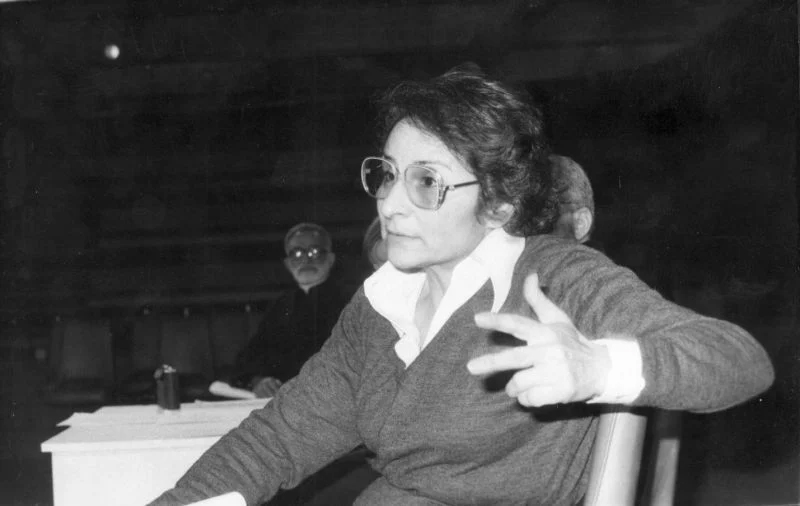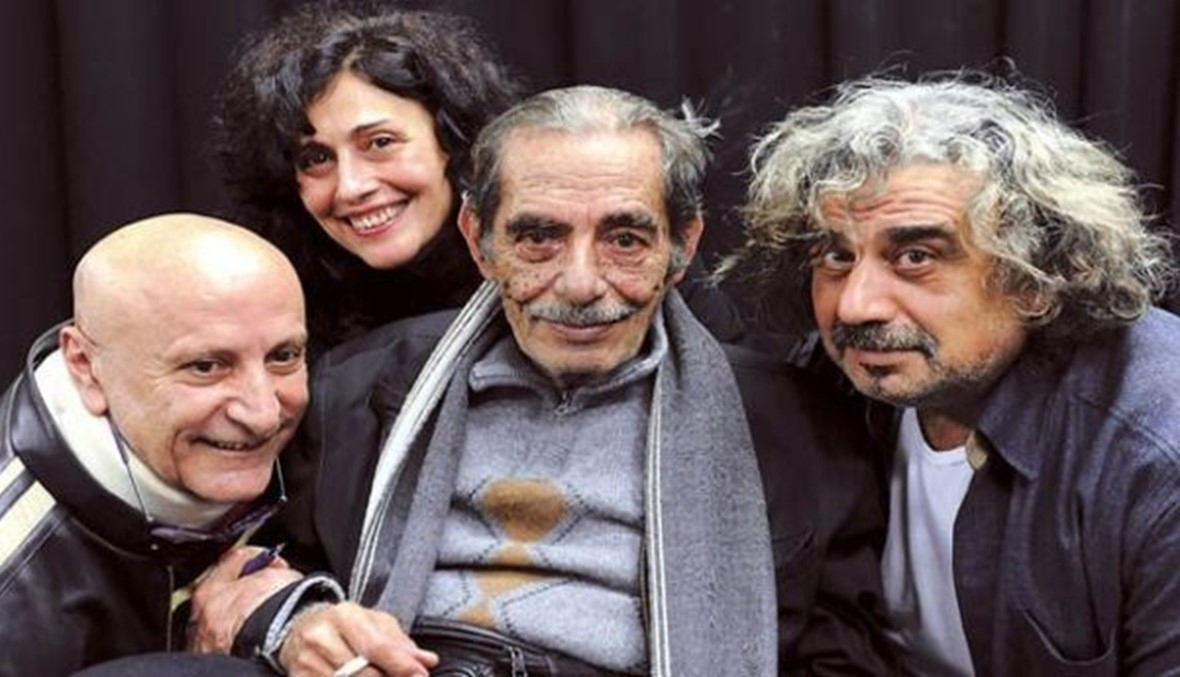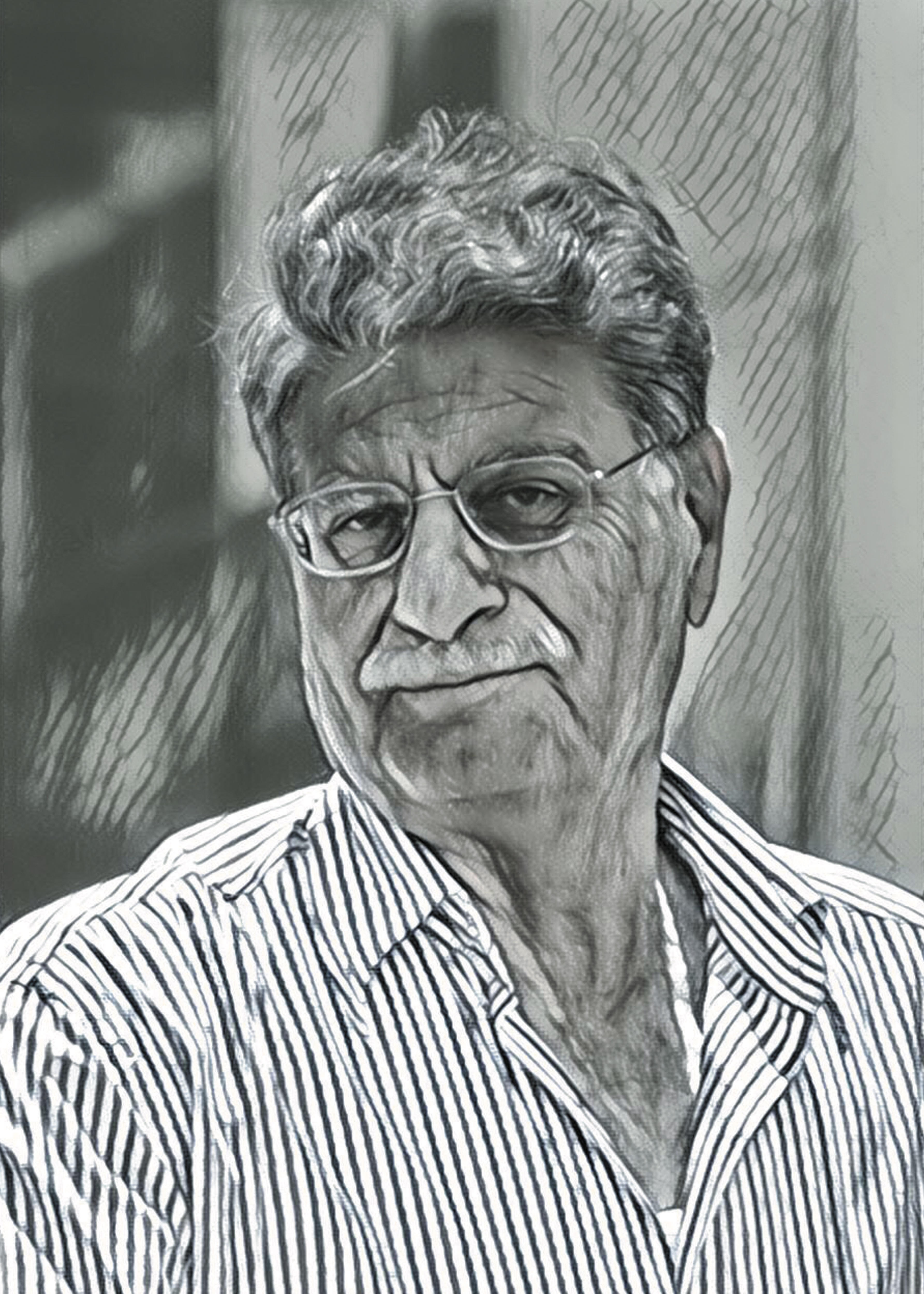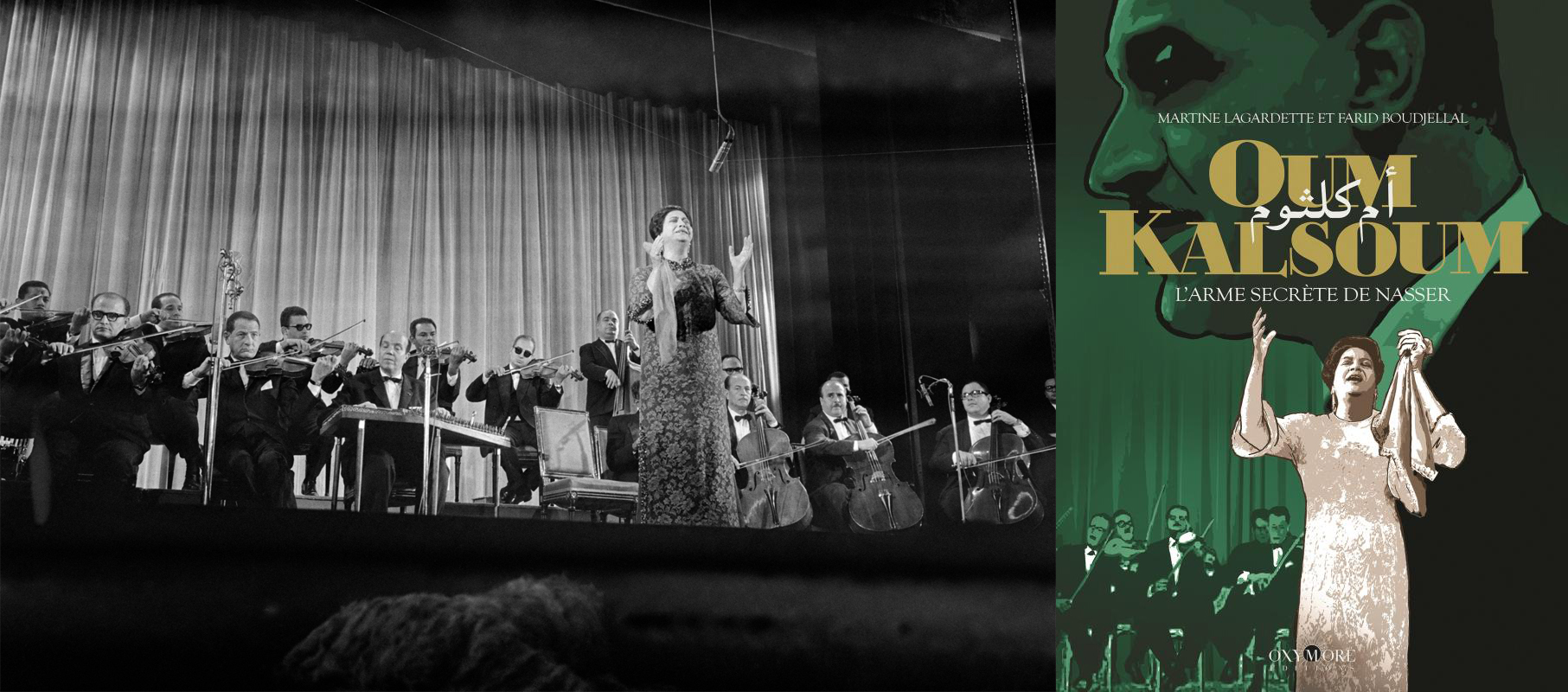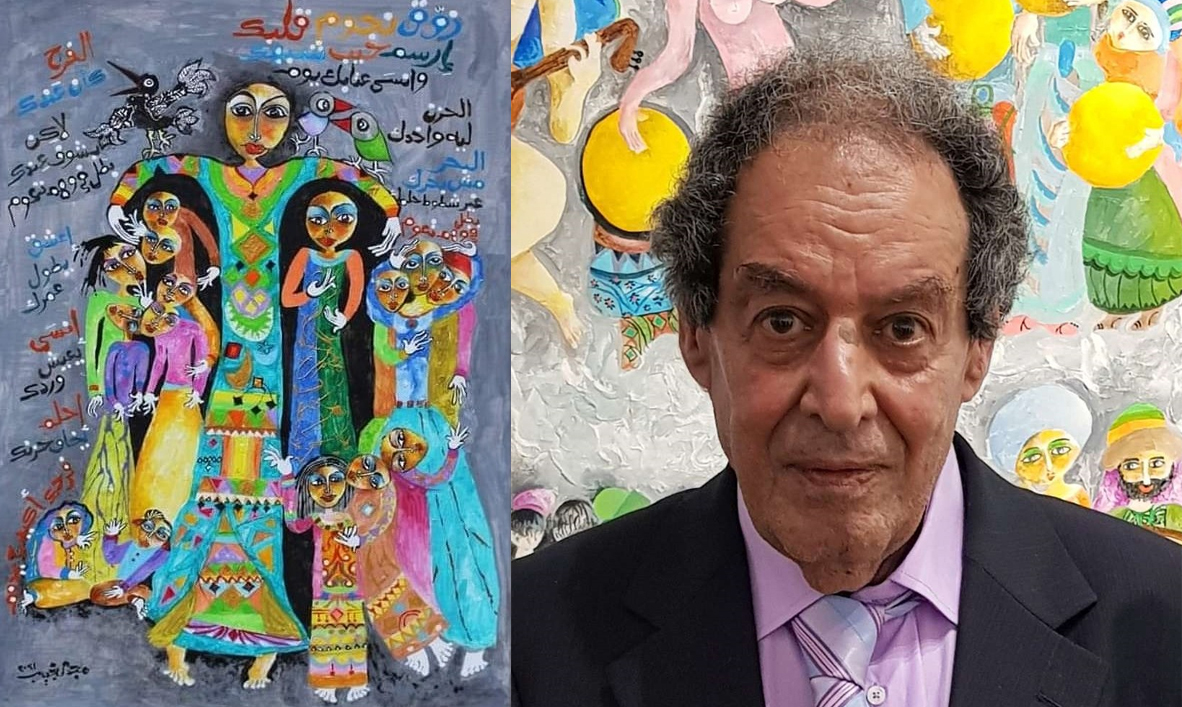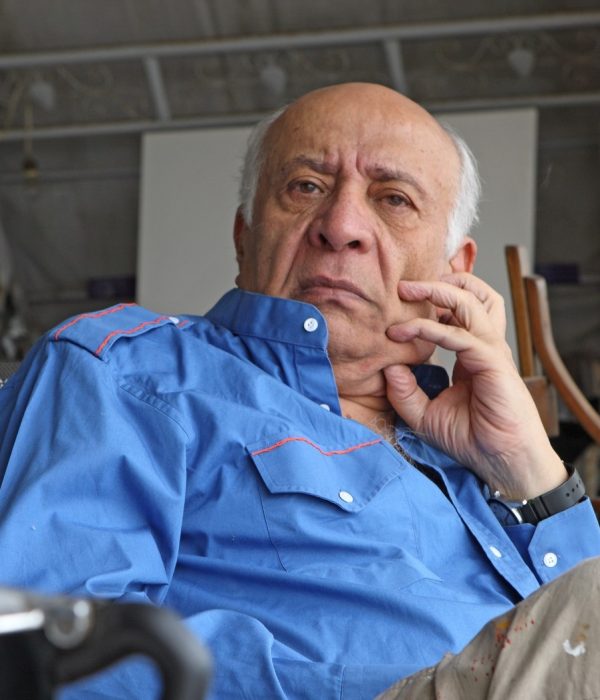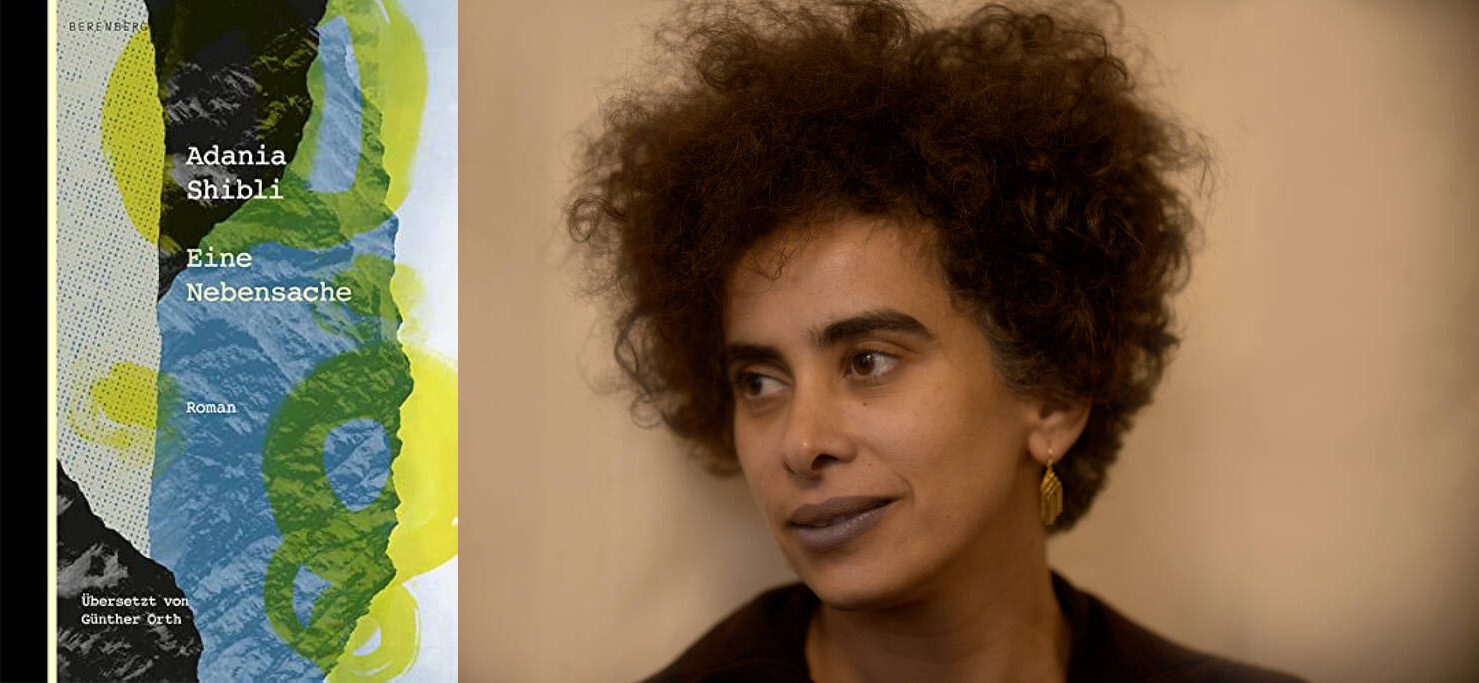Essays and Features
The Tragicomic Lebanese Reality in Raymond Jebara’s Theater: ‘Sarcastic to the Point of Despair’
Issam Mahfouz (1939-2006): Recalling Poet, Playwright, Critic as the Attractive Modernist
Antoine Multaqa, Enduring Pillar of Lebanon’s Golden Age of Modern Theater, Exits the Stage
Jalal Khoury (1933-2017): Brechtian Realist Forged by 1967 War, and the Birth of Modern Lebanese Theater
The ‘Guardian of Gaza’: Fathi Ghaben (1946-2024) Preserved Palestinian Memory, Colors, Dress, and Symbols Through Art
As if gripped by the fear of losing the history of Palestine, Fathi Ghaben kept Palestine close to him for his entire life, in his mind, art, and physical existence. Reporters, critics, and Palestinian government officials paid tribute to the artist, whose unwavering focus on Palestinian culture and memory saturated his life and work.
From Humble Roots to Self-Made Star: Undefeated by Time, Cultural Icon Umm Kulthum Captivates Arab and Western Interest Half a Century After Her Death
Multi-Talented ‘Poet of Colors’ Magdy Naguib (1936-2024) Mesmerized Music Composers and Singers of Egypt’s Musical Golden Age
The widespread reach of the Egyptian song and its artistic achievements, going beyond the Arab sphere to the rest of the world, owes its success to musicians, singers, and poets whose writings remain immortal today. Among them is the poet Magdy Naguib, who departed from the cultural scene on February 7, 2024, reports Al Habeeb Al Aswad in Al Arab newspaper. Hardly a moment goes by without news of the Arab cultural scene losing an artist, poet, songwriter, or other creative.
Hussein Madi (1938-2024): An Artist Whose Lifelong Embrace of Nature Created an Art That Will Endure
Postscript to ‘Indefinite Postponement’: Adania Shibli Breaks Silence on Frankfurt Book Fair Decision and Finds a Voice in the Absence of Words
When the Frankfurt Book Fair announced last October the “indefinite postponement” of Palestinian author Adania Shibli’s award for her novel “Minor Detail,” outrage erupted among critics not just in the Arab world but globally, with numerous translators, publishers, and award-winning authors condemning the decision in an open letter.

